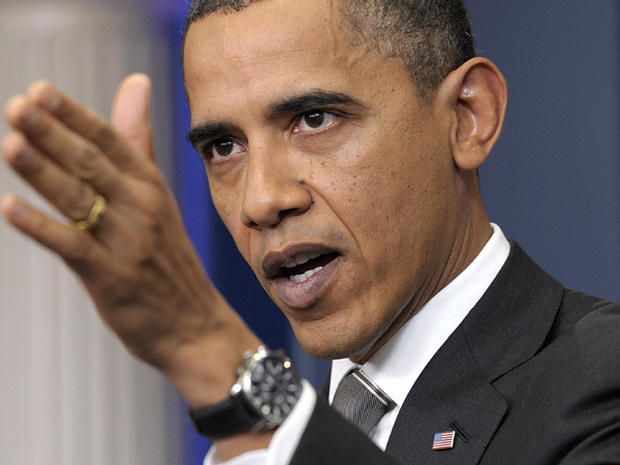Earmark Debate a Mixed Bag for White House
It's back to the drawing board in the Congress, as the two parties and the two chambers need to figure out how to fund the government for the next year.
Last night Senate Majority Leader Harry Reid (D-Nev.) pulled the collection of spending bills, called the omnibus bill, from the floor because much-needed Republican support eroded as the furor over earmarks in the bill made Republicans balk.
While the decision is not a clear loss for the Democrats, or a clear win for the GOP -- as political pundits will decide who won the earmark showdown -- it's not great for the White House. The Obama administration loses a political chip to use against the Republicans who have been loud in opposition to earmarks while quietly requesting millions of dollars worth of them. It's also not great for the administration because the bill that got scrapped was necessary for the Defense Department to fund its shifting priorities.
Secretary of Defense Robert Gates said that the omnibus was better than the alternative spending measure, which was a year-long continuation of the current spending levels. "We have very little flexibility to move money around the Pentagon budget without getting congressional approval for reprogrammings, which is always a complicated and time-consuming process," he said.
But now, the congressional approval process will likely begin in a few months; the most likely outcome of the failed omnibus will be that the current spending is extended only a few months, so the new Congress will get to decide what to spend money on.
This is a place where the White House may have secretly won in the battle over earmarks. White House Press Secretary Robert Gibbs yesterday reiterated the president's opposition to earmarks, but said he would have signed the earmark-laden omnibus bill anyway because of the needs of the Pentagon. "The president would strongly prefer a piece of legislation that doesn't contain any of those earmarks," said Gibbs.
Here's how the White House could win the showdown over earmarks: If the House and Senate do away with earmarks, they aren't necessarily arguing to do away with the spending, just the power of individual members of Congress to allocate tax dollars to causes of their choice, often without scrutiny. Leaving that power to -- you guessed it -- the executive branch.
Sen. Reid attacked this idea yesterday, arguing that the Constitution gives Congress the power to spend the money and that giving up the power cedes the responsibility to the executive, i.e. the Obama Administration. Therefore, many in Congress aren't necessarily saying don't spend it (even though they are hoping that's the outcome), they are simply giving up the right to decide how it's spent, because often that process is abused.
On this point, former Democratic Congressman Martin Frost put it another way in Politico: "The argument against earmarks has always been a sham. Eliminating them does not, in of itself, cut federal spending," he wrote. "Earmarks are not 'add-ons' (extra spending) but merely the direction of funds already agreed upon as appropriated levels. Eliminating them just transfers power from the legislative branch to the executive branch which will now have even greater authority to determine where federal dollars go."
He added that while the White House may like the power to decide where the money goes, the extra scrutiny that comes with it may not be a welcome thing. "Somewhere deep in the federal bureaucracy, people are now repeating the immortal words of Br'er Rabbit: 'Please don't throw me into that briar patch,'" wrote Frost.
Robert Hendin is a CBS News senior political producer. You can read more of his posts in Hotsheet here. You can also follow him on Twitter here.

